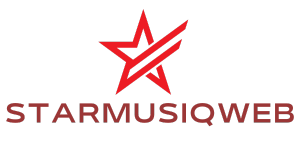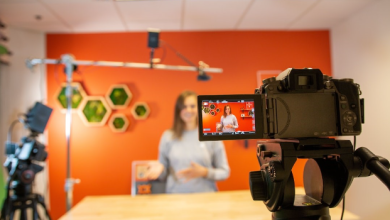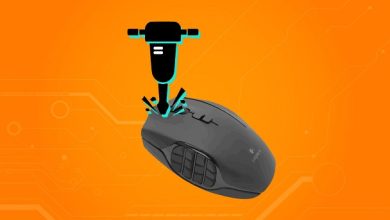AI Interview Questions Ahead: Get Ready to Outsmart the System

You’ve just applied for a job and got an email: “Your interview will be conducted via AI.” Suddenly, your excitement turns into nervousness since you have never been in such a situation before. A spree of questions runs through your mind about how you are going to prepare, how AI will judge you, and what if it makes a mistake and you lose a job? True, isn’t it?
But that’s just the nervousness that comes with job interviews. AI interview questions are not that different from human interviews. You just need to be prepared, and for that, we have curated the perfect guide. Read till the end, and you’ll feel more confident about the next AI interview.
What Exactly Are AI Interviews?
AI interviews are like general online interviews. The major difference is that instead of a human on the other side, you have AI software that records your answers and evaluates them based on your tone, clarity, confidence, and sometimes even facial expressions.
Nowadays, many companies are adopting this approach to interviewing, as it helps them speed up the screening process and maintain consistency.
It might feel strange at first, but with a bit of practice with AI interview questions, it becomes just another way to show who you are and how you think.
Common AI Interview Questions You May Be Asked
Preparing for an AI interview? Here are some commonly asked questions that can help you stay one step ahead.
“Tell Me About Yourself”
Whether you are taking human or AI interview questions, this is going to be a similar question. That being said, most people freeze or repeat what’s on their resume when answering it.
Instead of repeating what’s in your resume, talk about where you’re coming from and your background. You can also create an answer around the job role and share the kind of work you enjoy, and how you got interested in the role you’re applying for.
For example, you can say, “I started my career in media relations, but with time, I realised I was more interested in brand positioning and strategies. That is why I shifted my career to a brand specialist, and I have worked with many top names in the industry who taught me how this works.”
Keep it simple and help the AI (and the people reviewing later) understand your story.
“Why Do You Want This Job?”
Here’s where most people get stuck between saying what sounds right and what they actually feel. We’d suggest you choose the honest way. Share what makes this job interesting or why you chose this career.
For example, you can say: “In my last job, I only worked with print magazines, but now I want to understand how digital writing works, and this job can help me learn that.” Keep it honest and connected to something you’ve experienced. That’s what makes it sound real.
“Tell Me About a Time…”
Honestly, this famous question is prepared to see how you react to situations on the spot. So, listen to the question, take a few minutes to find a suitable experience, and then share.
Do not panic and try to answer the question as quickly as possible. That might lead to stumbling or forgetting the story. Show that you try, stay steady, and take ownership. And don’t forget to mention how the story ends, as that helps close the loop.
Scenario-based Prompts That Test Your Thinking
These AI interview questions start with “What would you do if…” and there’s no perfect answer. The goal of such questions is also to test your thought process. So, take a second, stay calm, and explain how you’d break the situation down.
You can say something like, “First, I’d try to understand the root of the problem by asking the customer more questions. If I needed help, I’d check in with my team or manager before making a call.”
Even if your answer is simple, it shows that you think things through and don’t jump in blindly. That’s exactly what interviewers are looking for.
How to Practice for AI Interviews
You know the AI interview questions; it’s time to learn a few tips to ensure your presentation is also on point.
- Get Comfortable on Camera
Most people aren’t used to talking to a screen, and they feel awkward, and that’s fine. Start by recording yourself casually answering common AI interview questions. You don’t have to rehearse every word. Just talk, play it back, and see how you come across.
Notice your tone, eye contact, and pace. Are you speaking too fast? Are you staring at yourself instead of the camera? These small observations help more than you’d think. And the more you do it, the less weird it feels.
- Use Mock Tools, But Keep It Real
There are plenty of free tools online that simulate AI interview questions. Try a few, but don’t overdo it.
If you mess up, don’t panic. Just take a breath and continue. That’s exactly what you’ll need to do in the actual interview as well. Keep it honest and close to how you’d really speak.
- Practice Like You’re Talking to a Person
Yes, these might be AI interview questions, but later, a human will review your response. So don’t get too robotic. Talk just the way you will talk to a person. Smile. Pause. Nod if it feels natural. This makes your answers warmer, more relaxed, and more engaging.
People and even AI can tell when you’re just reciting. Instead, show up like yourself. A little personality makes a big difference.
Crack AI Questions the Human Way
AI interview questions aren’t as intimidating once you understand how they work and, more importantly, how you can prepare for them. With a little practice, some honest answers, and a calm approach, you can let your personality and thinking shine through, even if there’s no one physically across the screen.
If you’re not sure where to start, online job platforms like Apna Jobs now offer free mock interviews with AI avatars from top companies to help you get comfortable and confident before the real thing. It also offers interview scores and detailed analyses to help you learn from your mistakes.
Use these tools, practice AI interview questions regularly, and treat every interview as a step toward getting better.





